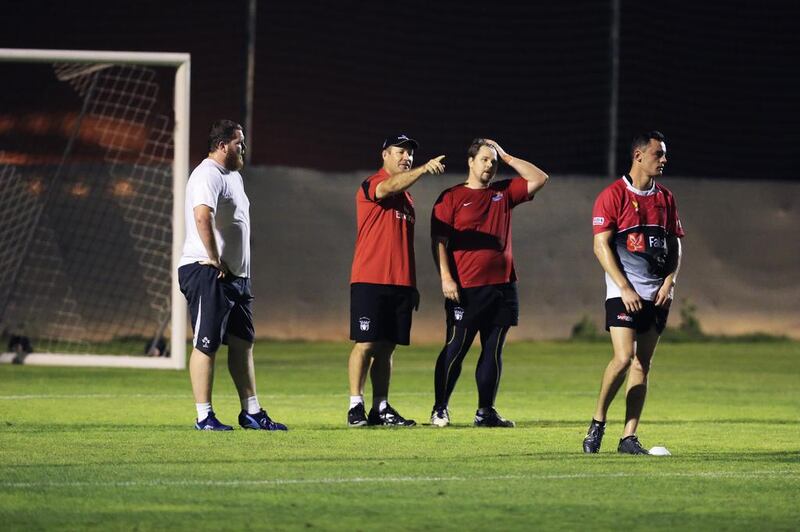DUBAI // Roelof Kotze, the UAE performance manager, said he believes an inter-regional rivalry between the national team and Qatar could help raise standards in Middle East rugby.
Qatar’s run of success finally came to a halt on Friday when they were beaten 31-22 by Malaysia at the Al Arabi Stadium in Doha.
Both sides had already secured third-division status in the new competition structure for Asian rugby next season, where they will be joined by UAE and Chinese Taipei.
That will be the first time two of the constituent nations of the former Arabian Gulf union will meet in a Test match.
An Arabian Gulf side represented the region in international competition before being disbanded at the end of 2010 and divided into member states.
Of the Arab Gulf countries, the UAE and Qatar were the first who were equipped to participate in competitive rugby, but they were granted contrasting entry points.
While the UAE assumed the Arabian Gulf side’s place in Asia’s top flight, Qatar had to start from the bottom and were given a place in Division 4 of the Asian Five Nations ladder.
The placing met with widespread approval at the time, but the performances of each side have contrasted starkly since.
Qatar won three successive titles, which led to them being promoted twice. The UAE, with two wins in 20 Test matches to date, have had successive relegations.
Now local bragging rights will be decided on a national level in the Arabian Gulf for the first time, which should appeal to all players, according to Kotze.
“I’m sure it will be an advantage,” he said of next year’s derby match against Qatar. “In some ways Qatar will have the benefit of extra friendlies as they play together as Doha in the Gulf Top Six, compared to our one or two. But we can manage that.
“The more opportunities that occur, the more we will get out of it.”
Qatar’s run of success since the side was set up in 2011 has been largely founded on a strong team spirit, based around their identity as a one-club nation as well as their appearances as Doha in the domestic club competition.
By contrast, the UAE have struggled over the past four years to marry competitive performances at the top level with a development plan centred on promoting emerging Emirati players.
“The UAE are trying to push forward the Emiratis and are further ahead in terms of development,” said Liam Frost, the Qatar centre.
“At the moment Qatar is still in its infancy with that. But we have the advantage that there is one club here so we have an already existing bond between the players.”
pradley@thenational.ae
Follow our sports coverage on twitter at @SprtNationalUAE






